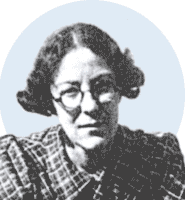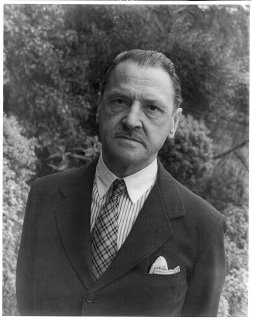Forgotten Classics: W. Somerset Maugham, Cakes and Ale; or, the Skeleton in the Closet (1930)
William Somerset Maugham was the epitome of the professional writer. After the runaway success of his first novel, Lisa (1897) he would write for a living for a further 65 years. As such he is both important as much for his popularity (which was vast) as his longevity (his final book of memoirs appear in 1962); at a conservative estimate he wrote some 55 books, often two or three a year. He was also a prodigious playwright. His books were immensely popular and sold hugely; the scale of his reach as a writer is wide.
Maugham is significant because of his eye for detail, his clipped prose and his cynical, aloof authorial voice. He was criticised by the modernists yet he outlived them all to witness the end of empire and two world wars. In Cakes and Ale he says of his fictional eminent novelist Edward Driffield ‘His outstanding merit was not the realism that gave vigour to his work […] it was his longevity’. Maugham said that he himself was ‘in the very first row of the second raters’. Such modesty belies his ability to write directly and with such assurance. Furthermore, it is clear from Cakes and Ale that Maugham had a very sharp eye for the absurdities of English cultural life.
Cakes and Ale is a delightfully tart, meandering meditation on what it means to be an author. It is a fine novel that should be read; furthermore, Maugham’s comments on the fickleness of literary celebrity and longevity are prescient and amusing. He sees clearly that books are famous because of who tells you to like them, and that authors are ‘good’ because they are said to be.
The novel consists of two stories that are interwoven. The narrator, a minor novelist called William Ashenden, is asked to lunch by a more significant (or critically acclaimed) writer Alroy Kear. Kear has been asked to write the biography of Edward Driffield, an eminent novelist who has recently died (Driffield is generally assumed to be a portrait of Thomas Hardy, though Maugham denied this strenuously). Ashenden had known Driffield in his youth, and the occasion of the memoirs prompts him to think back to his experiences with the eminent writer and, more importantly, with his vivacious muse (and first wife) Rosie.
Driffield wrote vigorous realist novels in his youth and stuffier books in his later period, and after he stopped writing became acclaimed as the best writer in English. His status as the grand old man of English letters is mainly due to the influence of various tasteful women, and particularly his second wife. She forces him to act the part (even though he really doesn’t want to). He is banned from the local pub and forced to have dinner with wealthy aristocrats as befits his station. When he visits as part of one of these parties, Ashenden is surprised by Driffield winking at him and poking his tongue out when no-one is looking. Cakes and Ale, then, counterpoints Ashenden’s memories of the reality of events with the creation of a literary myth. Driffield’s novels have been made tasteful, and his reputation is going to be furthered by a memoir that, in Kear’s words, will be ‘like a portrait by Van Dyck, with a good deal of atmosphere, you know, and a certain gravity, and with a sort of aristocratic distinction […] a sort of intimate life, with a lot of those little details that make people feel warm inside’. The writing, he concedes, will require ‘tact’. It is this ‘tact’ that Maugham finds contemptible. What becomes clear in the reading of the novel is that Ashenden is writing his own version of events down in order to prick the particular pompous bubble that Kear is creating for Driffield. When told that he used to sing music-hall songs Kear comments ‘After all, when you’re drawing a man’s portrait you must get the values right; you only confuse the impression if you put in stuff that’s all out of tone’.
The title of the novel demonstrates Maugham’s contempt for this obscuring of reality (and constructing a ‘tasteful’ author to worship): ‘Dost thou think because thou art virtuous there shall be no more cakes and ale?’ is Sir Toby Belch’s riposte to Malvolio in Twelfth Night. Maugham uses the reference to mock a virtuous literary establishment attempting to ignore the rude reality of the working- and peasant- class writer. The ‘Skeleton in the closet’ – Rosie Driffield – represents the raucous, vital, festive spirit of England (she is something of a caricature) which is being stifled by the good taste of the contemporary critic and novelist. There is also something wistful in the writing of the novel that suggests that in looking back to former lives one realises that, yes, the festive time has been lost.
The events of Cakes and Ale are very closely related to Maugham’s own life. He was effectively an only child (his siblings were much older), brought up by his Uncle in Whitstable following the death of his father. He spent five years in London training to be a doctor. In these respects the novel is similar to Maugham’s earlier Of Human Bondage; Maugham himself is explicit about the similarities between the novels in his preface, written to answer the furore that greeted the initial publication. Cakes and Ale is not, he clearly says, about Thomas Hardy; ‘all the characters we create are but copies of ourselves’. The characters are composites, he argues, claiming that he is not attacking anyone in particular. The obvious conclusion to draw from this is that he is attacking no single figure but mocking the entire preposterous collection.
His enduring legacy is to be found in the Somerset Maugham award for new fiction.



